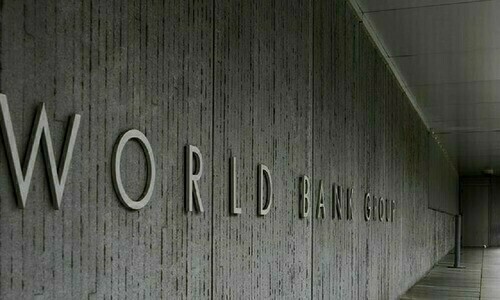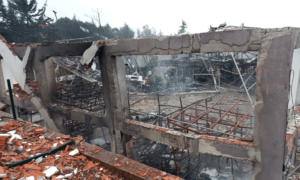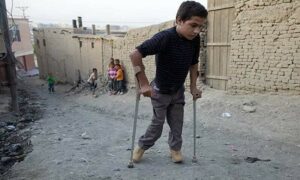ISLAMABAD: The World Bank is expected to provide over $2 billion annually to Pakistan for five years under its next Country Partnership Strategy (CPS), which will likely be finalised by December.
This was indicated to journalists on Tuesday by a World Bank team led by Country Director Najy Benhassine that also confirmed that two years after the devastating floods in 2022, only 104 bank accounts have been opened in Balochistan against an estimated 250,000-280,000 potential beneficiaries of the $213 million (about Rs60bn) Integrated Flood Resilience and Adaptation Project.
Responding to a question about the World Bank’s concessional lending window to Pakistan under the International Development Assistance (IDA) for the future, Mr Najy said he did not have exact information about allocations for the next CPF that would be finalised in December but hoped it would remain more or less around the same level as in the current 2022-26 CPF.
The bank provides over $2bn annual financing to Pakistan as part of about $12bn portfolio under the ongoing five-year CPF, including commercial loans under its International Bank for Reconstruction and Development (IBRD) to middle-income and credit-worthy low-income country governments.
Mr Najy said there were difficult situations in many countries, and IDA contribution could vary, but the World Bank had set six priorities under the long-term strategy for CPS 2025-30. On top of the list would be to address child stunting, followed by education to address the challenge of out-of-school children and climate resilience in the agriculture and water sector nexus.
Other priorities include decarbonisation, particularly in hydroelectric power and air quality improvement in Punjab, followed by fiscal reforms for macroeconomic stability and fiscal inclusion and then improving the business environment for the private sector expansion.
Responding to a question on recent criticism from Planning Minister Ahsan Iqbal over insufficient funding commitments, subsequent low disbursements and repurposing previous project financing for flood rehabilitation and reconstruction, Mr Najy agreed that the funding needs of various countries in such natural disasters were huge and limited special funding windows to deploy immediately for rehabilitation.
“I agree concessional funds should be available to low-income countries to deploy rapidly and it should not be at the expense of existing investments in health, education and social sector”, he said and appreciated that Pakistan’s initial estimates for flood losses were more or less of the same level later reassessed by the international partners including the World Bank and the UN agencies.
While the World Bank team was all praise for the implementation pace of about $1.3bn post-flood projects in Sindh, the situation in Balochistan — the second most affected province by 2022 floods —appeared to be not so encouraging. The bank officials, however, added that systems had now been developed that would help scale up disbursements and investments into reconstruction and rehabilitation activities.
Published in Dawn, October 9th, 2024







